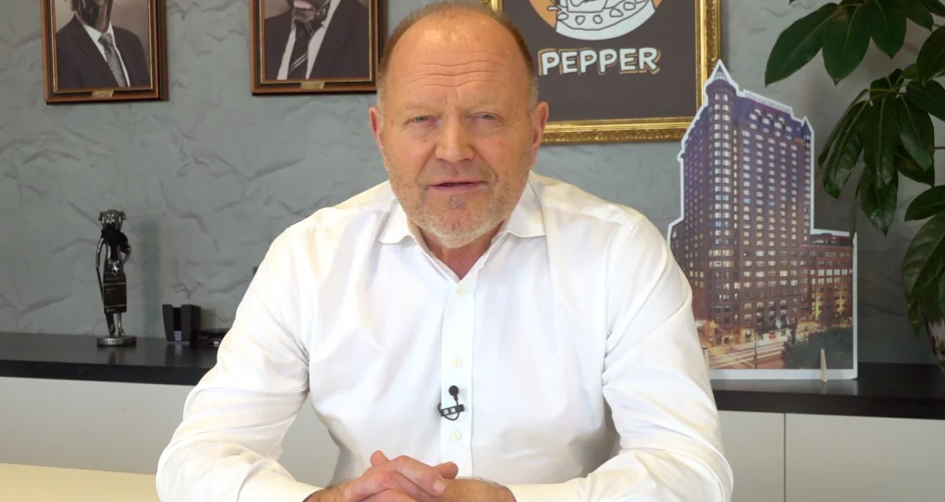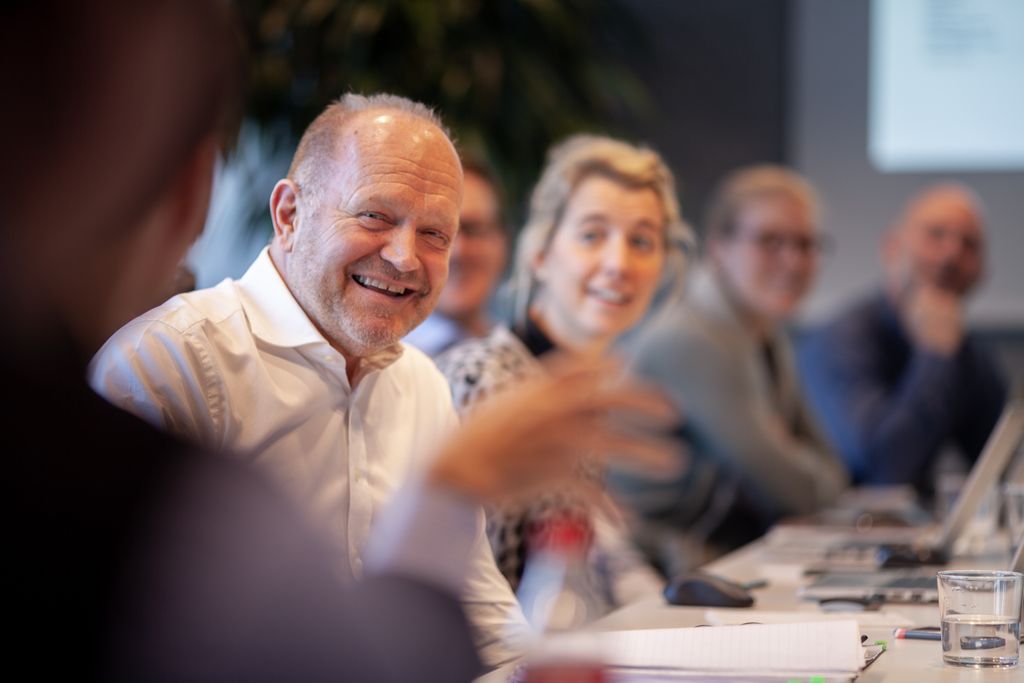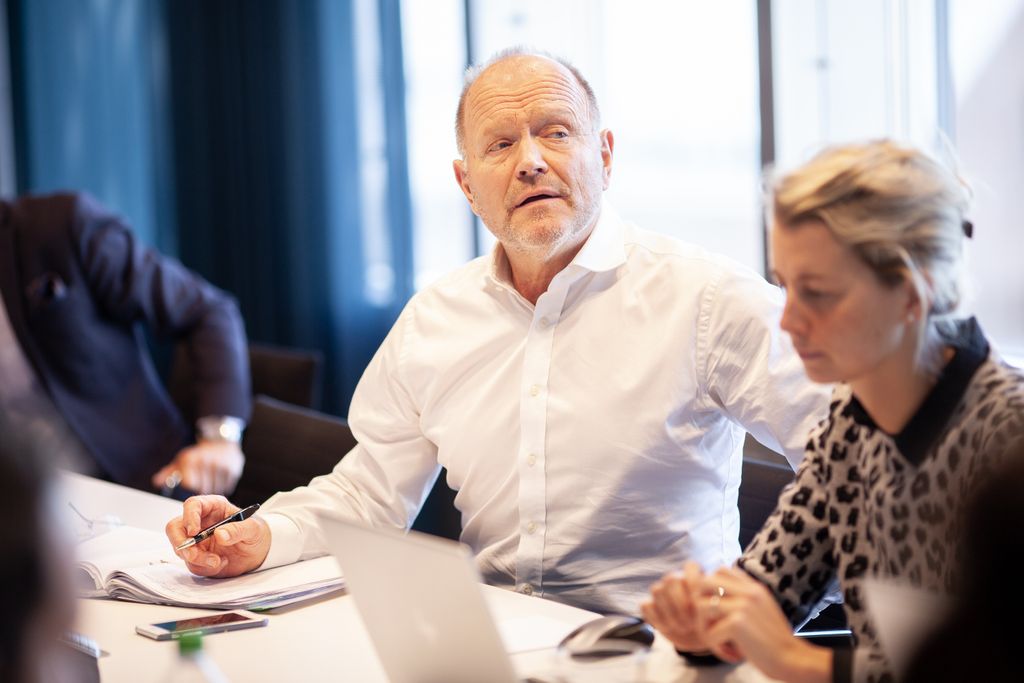CEO comment:
A clear game plan
in a difficult situation
2020 was a historic year in two senses for Pandox. Firstly because we celebrated our 25th birthday, and secondly because 2020 will go down in history as the weakest year ever for the hospitality industry due to Covid-19. Thanks to a well proven business model, extensive crisis experience, clear priorities and an agile organisation, Pandox has succeeded in navigating its way through the storm relatively well.

See Anders summarise the year in a movie here.
A hotel property specialist
Pandox is one of Europe’s leading hotel property companies with 156 hotel proper-ties and more than 35,000 rooms in 90 larger cities in 15 countries, mainly in northern Europe. Since it was founded in 1995 Pandox has purposefully built a pan-European business platform and a property portfolio with a market value of around MSEK 59,500, which is around a hundred times more than when the Company was started in 1995. The portfolio is made up of well-refurbished high quality hotel products in the upper-mid scale, full-service segment. All the hotels are in naturally strong locations and the average size is 225 rooms, providing critical mass and the conditions for good, stable profitability. The portfolio boasts var-ious dimensions of diversification – including geography, location, demand, brand and hotel product, creating a strong industrial platform. A total of 84 percent of the portfo-lio consists of hotels in domestic and regional cities with mainly domestic demand.
Pandox has survived many crises
Pandox was formed in 1995 when Secu-rum’s and Skanska’s hotel property portfolios were merged. The property crisis had brought the insight that both expertise relating to the hotel industry and property knowledge were needed to create value in hotel properties. Since then, Pandox has successfully navigated its way through various significant crises: the aforementioned Swedish financial and property crisis of the 1990s, the terror attacks in New York in 2001 and Brussels in 2016, the SARS virus in 2003 and the major financial crisis of 2008–2009. The causes of these crises differed, but developments during and after each crisis followed a similar pattern. Each time sceptics proclaimed the demise of travel and claimed that people’s behaviour had changed fundamentally. When these behavioural changes failed to emerge after each crisis, Pandox was instead able to take advantage of the situation and move its business forward.

New hotel capacity was the primary concern before 2020
Before 2020 Pandox saw good opportunities for continued growth. Forward-looking financial indicators for the global economy were positive and the long-term drivers in the hotel market were intact. However, there were certain signs of concern. A lot of new capital had flooded into the hotel market, partly in the form of buyers with no experience of the hotel property industry (“yield tourists”) and partly in the form of new hotel capacity costed on the basis of perpetual growth, a low cost of capital and an ever more favourable financing climate. Less and less value was placed on knowledge of the hotel industry, and more and more on risk-taking.
In my comments in the 2019 Annual Report I briefly mentioned that the new coronavirus was expected to have a some-what slowing effect on demand for interna-tional destinations. At that point in time we had no idea that things would develop as dramatically as they did.
Respond, Restart, Reinvent
The first quarter started positively, with stable growth in January and February, but ended with a historic collapse in demand in March due to Covid-19 and the extraordinary steps taken by the authorities to reduce the spread of the virus. This led to a significant drop in occupancy and RevPAR irrespective of country, city, demand profile or subsegment.
Being an organisation experienced in dealing with crises, with short decision paths and world-class employees, we were quickly able to adapt to the new situation. We switched from attack to defence and adjusted our business model more or less in the course of a long weekend when we real-ised that our worst case scenarios were not sufficiently negative. Instead of acquisitions and expansion, we were now prioritising liquidity, cost savings and new payment terms with our tenants.
We rapidly produced a strategic framework to guide us through the crisis in a structured way: Respond, Restart, Reinvent. Respond means the steps we take to mitigate the immediate crisis, such as prioritising in order to secure liquidity, balance revenue and costs, keep our hotels open, be ready to act to protect the value in our hotel properties, and practise leadership that is open, active and present.
In parallel we began work on the Restart phase, setting out various scenarios for the form the recovery in the hotel market might take. We broke down the market into different subsegments and tried to understand the underlying drivers. One clear trend we have seen is that it is the restrictions that are holding back demand in the hotel market, rather than behavioural changes. When restrictions are eased, demand increases – and vice versa. That may sound obvious, but it is highly significant when assessing the hotel market’s potential for recovery once restrictions are eased. One example is that people not permitted to travel on business are still travelling within their own country in their leisure time, which has helped keep domestic travel – the most important segment for the hotel industry – relatively strong while international demand has been low. Economy, mid-scale, and resort and apartment hotels in regional hubs and attractive leisure destinations – easy to reach by car or train – have been the winners. Those losing out have mainly been international premium hotels and large conference hotels.

Focus on sustainability during the pandemic
Although the year has largely been about dealing with the immediate crisis, it was important not to slacken our pace on critical long-term issues such as sustainability. We support the UN Global Compact and its Ten Principles in the areas of human rights, labour, the environment and anti-corruption. We want our business to contribute in the long term to achieving the UN Sustainable Development Goals. Pandox is resolutely sticking to its long-term sustainability strategy of offering its tenants green properties.
We have taken further steps to integrate sustainability efforts into our business and are driving this work within five focus areas with clear actions and goals. During the year three pilot properties achieved BREEAM certification at the Very Good level and our green investment programme within Opera-tor Activities remains in place. These measures reduce the climate impact of the operations and increase our ability to manage climate risk. They also have a positive impact on Pandox’s results through investments and new commercial opportunities that drive cash flow.
Working continually to understand changes
The last step in the framework, Reinvent, involves creating insights into how the hotel market may change as a result of Covid-19 in terms of consumption trends, types of agreements, business models, distribution and brands. Certain Covid-19-related changes are sure to remain, such as enhanced cleaning and hygiene routines, more contactless check-in and check-out, and the development of multifunctional rooms. Read about more trendspotting by my colleague Aldert on page 15.
Our assessment is that domestic travel will continue to lead the recovery in the hotel market, which means possible changes at several levels – including a strengthening of national and regional hotel brands in relation to global brands. Leisure travel will make up a greater proportion of travel and will become even more important for growth in the hotel market in future. Online travel agencies (OTAs) are likely to advance their position since they are not dependent on
global brands but can quickly adapt to new trends in the market. As an example, Google is now the most important starting point when searching for travel. Its local search strategy, with hotel suggestions deeply inte-grated into Google Maps, for example, will strengthen the position of local brands in driving local demand.
Leases are likely to change, with fewer fixed leases and more revenue-based leases – in which the operator and property owner share the risk, upside and investments. Pandox is well positioned for this development, because by far the majority of our leases already have a revenue-based component and we have extensive hotel industry expertise.
Full concentration throughout the match
We are convinced that people will start travelling again once they are allowed to. With a strong and flexible business model in which we can both own and run hotels, a stable financial position, a high quality and well-positioned portfolio, as well as world-class employees who together create a strong corporate culture, we are ready for all future scenarios. Bring it on!
I would like to say thank you to all our “Pandoxers”, shareholders, business part-ners and other stakeholders for your support during this historic year. Thanks must also go to our beloved office dogs – the Pandogs – for their positive attitude, playfulness, good nature and for the insight that there is always something exciting around the corner.
Stockholm, March 2021
Anders Nissen
